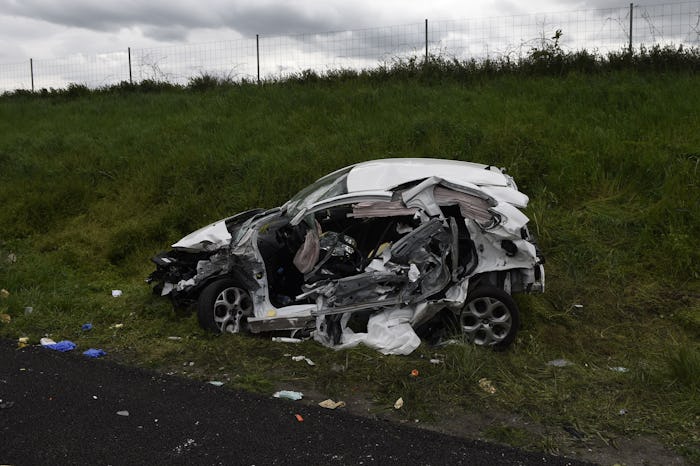News

School Tells Students Classmates Were Killed In A Car Crash, But None Of It Was True
One recent morning at a small high school in rural Wisconsin, students got some awful, heartbreaking news: Four of their classmates had been killed in a car crash involving texting and driving. The announcement, broadcast throughout the school, even named the victims. Some students started crying; Many texted their parents. And then they learned that none of it was true. In fact, the "dead" students were alive and well, but had agreed not to respond to texts or calls from frantic classmates as part of a baffling installment of Brodhead High School's yearlong safe-driving campaign. The fallout has top school officials reportedly reevaluating the efficacy of the "activity," and some students understandably feeling hurt and distrustful of the administration.
"They went into detail about how one of them was rushed to the hospital," Sam Bolen, a junior who was in algebra class when he learned the "news," told The Washington Post. "I was pretty upset. It is a really small school, like, most of the people really knew who they were. You kind of know who everybody is in a smaller school."
And, in a move that was perhaps just as perplexing as the original decision to tell students their friends had died, the school continued announce that other students had been killed in car accidents throughout the day. (Romper reached out to Brodhead High School for comment but did not immediately hear back.)
Those "dead" students — some having met their grisly end when T-boned by a fictitious drunk driver — were in school as the day wore on, though, wearing black clothing.
Some students viewed the entire endeavor as upsetting and strange. For Bolen, it shook his very trust in his teachers and other school officials, making the exercise feel ineffective to him. "They were trying to teach using scare tactics, which doesn't teach," he said afterwards, according to ABC 7 Eyewitness News. "It just makes you not trust the teachers and any of the announcements you're going to get."
Other students were apparently onboard, as the entire ruse was reportedly executed in collaboration with the student council at the high school, which is in a rural area about 100 miles southwest of Milwaukee.
And one student, who identified herself as a member of that student, had some strong words for students who felt that the elaborate deception went too far. On Facebook, Miranda Ryser wrote that the faking students' deaths was among the only ways to actually get high schoolers' attention:
To the people who are upset about what happened at school today, good. I hope you're upset about it because I would rather have you upset and pissed off at the student council and the principal for a day, instead of being depressed because one of your classmates ACTUALLY died ... We're saying please drive careful, think about your actions. If we did anything like this in another way, no one would listen or pay attention to ANYTHING. Try warning high school students of the dangers they just don't care. Half of the students do drugs yet nothing is ever done to warn them about it. No but please keep saying things like how bad it was. Please.
And according to Madison.com, texting and driving is a major concern in Wisconsin. A 2013 survey by the Department of Public Instruction revealed that more than 50 percent of high school juniors in the state reported texting and driving at the same time. Nationally, the AAA Foundation for Traffic Safety found that some type of distraction is the cause of 60 percent of crashes involving teenagers, The Washington Post reported.
Still, Superintendent Leonard Lueck told Madison.com that he likely would not want take a similar route in warning about the dangers of unsafe driving in the future, unless "we can do it in a manner that wouldn’t offend other students, without providing stress to them."
Surely, there are other ways to get teens' attention without telling them their friends are dead. Either way, these Brodhead High School students will certainly remember their school having done so — and perhaps they won't be discussing over texts while they're behind the wheel.